
Bryn Harrison's highly acclaimed, labyrinthine composition for violin & piano from 2014, expertly realised by violinist Aisha Orazbayeva and pianist Mark Knoop, for whom this 5-part work of beautiful repetitions reflecting tapestries of sound was written.
In Stock
Quantity in Basket: None
Log In to use our Wish List
Shipping Weight: 3.00 units
EU & UK Customers:
Discogs.com can handle your VAT payments
So please order through Discogs
Sample The Album:
Mark Knoop-piano
Aisha Orazbayeva-violin
Bryn Harrison-composer
Click an artist name above to see in-stock items for that artist.
Label: Another Timbre
Catalog ID: at96
Squidco Product Code: 22324
Format: CD
Condition: New
Released: 2016
Country: UK
Packaging: Cardboard Gatefold
Recorded at the Sendesaal Bremen,July 27th, 2015, by Siegbert Ernst.
"Bryn Harrison's highly acclaimed, labyrinthine composition for violin & piano from 2014, expertly realised by Aisha Orazbayeva (violin) and Mark Knoop (piano). "Bryn Harrison introduces another world, but one we cannot see at first. The repetitions are the way to get closer to it; every time the music repeats, the world comes closer to us, revealing its colours shapes and architecture."-Another timbre
"If you don't know the deft and gossamer music of Bryn Harrison, this album would be a beautiful place to start. The Bolton-born 40-something fits broadly within a British contemporary music bent for clever, subtle minimalism - his own heroes are Feldman, Messiaen, Skempton. There is, though, something especially economical and fantastical about Harrison's sound; something in the way he repeats and interlocks fine-grained, shimmering material and keeps us spinning in a magical place between stasis, flux and momentum. He wrote Receiving the Approaching Memory for violinist Aisha Orazbayeva and pianist Mark Knoop in 2011 and they do it marvellous justice: violin lines flit about, birdlike, against a glittering piano backdrop, both instruments sounding as quiet and urgent as a whisper made on an inhalation. Orazbayeva is a taut and boisterous player who doesn't let a single note rest: this music might be repetitive, but every moment is alert, agile and ready to take flight."-Kate Molleson, The Guardian
Interview with Aisha Orazbayeva & Mark Knoop
What drew you both to Bryn Harrison's music, and what would you say are its strengths?
MK: I came to Bryn's music through Matthew Shlomowitz and Joanna Bailie, the directors of Plus Minus Ensemble, who asked Bryn to write a piece for the ensemble's very first concert, in 2003. That work, 'Rise', immediately attracted me by the way it created an immensely detailed surface texture that still allowed for great clarity in the form and direction of the piece. Since then, Bryn wrote us another, much longer work, 'Repetitions in Extended Time', which takes both these aspects even further: extremely high levels of local detail serving an almost monolithic global form.
AO: My first encounter with Bryn's music was 'Leaf Falls on Loneliness' which I performed with the Ossian ensemble in 2010. The piece made an impression and stayed with me for a long time. When Mark told me that there's a long piano and violin piece I jumped at the opportunity to perform it. In his music I feel like Bryn introduces another world, but one that we cannot see at first, and the repetitions are the way to get closer to it so that every time the music repeats the world comes closer and closer to us, revealing its colours, shapes and architecture.
There is obviously a long history of compositions for violin and piano, and it's probably either impossible or foolish for contemporary composers to ignore or forget that tradition. Do you think that in a way that is part of what we are 'receiving' when we listen to Bryn's 'Receiving the Approaching Memory'? How do you feel the work relates to or diverges from the tradition of classical violin sonatas?
AO: I don't really see this as a 'violin and piano' piece in the traditional sense, I feel like it's more about the sound, texture and form of the piece rather than the instruments. It's highly virtuosic at the same time, but that aspect is not at the forefront, the difficulties are hidden from the listener and the performers are somehow hidden too.
MK: I had not considered that interpretation of the title, although it's an interesting thought. Whilst Bryn's music is of course influenced by the canon (as is all music), I don't see him as a composer who is primarily engaged with reinterpreting that tradition. Having said that, a parallel could be made between the tonal structure that underpins sonata form and the way tonality develops through 'Receiving the Approaching Memory'. The piece is in five sections: in the first, both instruments' pitches are drawn from a complete chromatic pitchset. In subsequent sections, different pitches are removed from each instruments' part so we have fewer common pitches (just C and F in the final section). Whilst I don't think this is consciously perceived as "tonal" development by the listener, it certainly creates a subconscious sense of progress in what is otherwise essentially static music.
You recorded the piece in the famous Sendesaal at Bremen radio. How did that come about, and did it feel like a special venue?
MK: I've been aware of the hall for a while, and recorded and performed there several times in the last few years. It was built in the fifties and features a mid-size hall with an exceptionally clean acoustic, suspended on springs and isolated from the exterior of the building. This acoustic was ideal for Bryn's music, giving the necessary clarity for the detail of the piece without becoming clinical or dry.
AO: I'd never performed in the hall before, but it was a joy to play and record there, and felt like a very special venue.
Both of you have moved to the UK from elsewhere, and I wondered how you both saw the experimental music scene here? Are there aspects that you feel are particular to this country, and are there any features which you regard as particular strengths or weaknesses?
AO: I left Kazakhstan when I was a teenager and back then my only violin preoccupations were to do with good intonation and drawing a straight bow. I became aware that there is an experimental music scene at all, not just in London, after I realised the formal violin training that I had since I was four was often not about the music, but a certain prescribed way of performing a certain prescribed repertoire. When I began studying with Clio Gould my focus gradually started to shift from achieving a perfect result to the process of discovering new ways of making music and a more personal relationship with the instrument. This change in the way I thought about music led me to discover the experimental scene in the UK, so far it's the only one I've experienced.

The Squid's Ear!
Artist Biographies
• Show Bio for Mark Knoop "London based pianist and conductor Mark Knoop is known for his fearless performances and individual interpretations. He has commissioned and premièred countless new works and worked with many respected composers including Michael Finnissy, Joanna Bailie, Bryn Harrison, Bernhard Lang, Matthew Shlomowitz, Jennifer Walshe and Steven Kazuo Takasugi. His versatile technique and virtuosity also brings fresh approaches to the standard and 20th-century repertoire. Mark performs regularly throughout Europe, the United Kingdom and Australia and in New Zealand, South Korea, Mongolia, United States of America, Canada and at festivals including Transit (Leuven), Ultima (Oslo), Huddersfield, London Contemporary Music Festival, Borealis (Bergen), Spor (Århus), Athelas (Copenhagen), and MaerzMusik (Berlin). He performs with various ensembles including Plus-Minus (London/Brussels) and Apartment House (London), and has conducted EXAUDI (London), Scenatet (Denmark), and London Sinfonietta. His recordings of music by John Cage, Richard Beaudoin, Karlheinz Stockhausen, Peter Ablinger, and David Lumsdaine have been critically acclaimed." ^ Hide Bio for Mark Knoop • Show Bio for Aisha Orazbayeva "Aisha Orazbayeva (born 1985) is a violinist from Kazakhstan. She also writes and has had plays broadcast on the radio. She gained notice for her performance of Salvatore Sciarrino caprices." ^ Hide Bio for Aisha Orazbayeva • Show Bio for Bryn Harrison ^ Hide Bio for Bryn Harrison
11/18/2024
Have a better biography or biography source? Please Contact Us so that we can update this biography.
11/18/2024
Have a better biography or biography source? Please Contact Us so that we can update this biography.
11/18/2024
Have a better biography or biography source? Please Contact Us so that we can update this biography.
Track Listing:
1. Untitled 9:44
2. Untitled 8:04
3. Untitled 8:05
4. Untitled 7:07
5. Untitled 5:27
Compositional Forms
Trio Recordings
London & UK Improv & Related Scenes
New in Compositional Music
Search for other titles on the label:
Another Timbre.

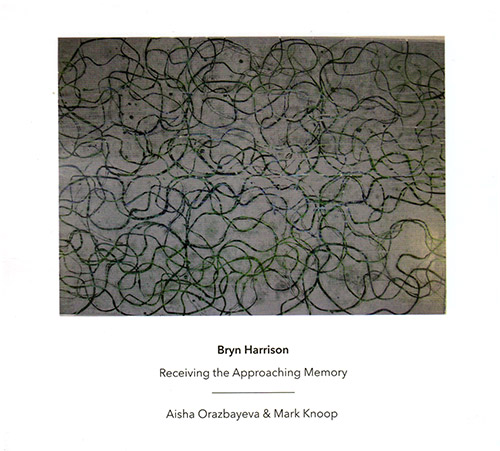


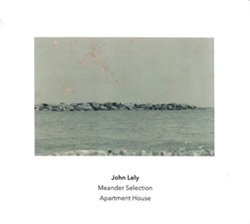
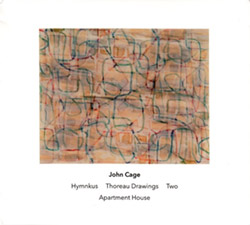
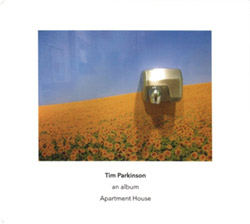
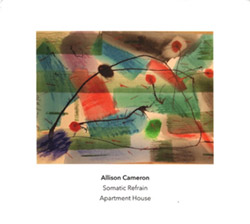
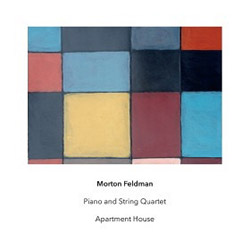
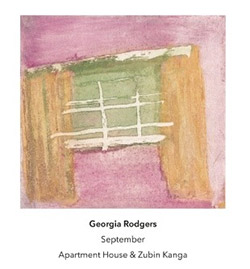





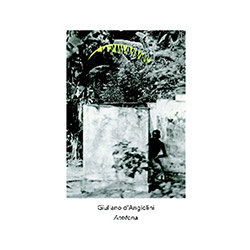




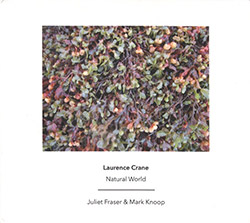
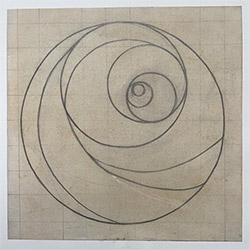


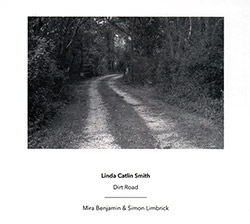
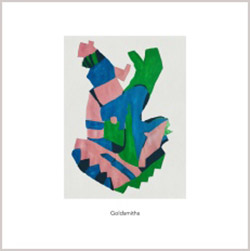















![Barker / Parker / Irabagon: Bakunawa [VINYL]](https://www.teuthida.com/productImages/misc4/35533.jpg)
![Blaser, Samuel / Marc Ducret / Peter Bruun: Dark Was The Night, Cold Was The Ground [VINYL 10-inch]](https://www.teuthida.com/productImages/misc4/35492.jpg)










![Warren, Kenny (Warren / Hoffman / Ellman): Sweet World [VINYL]](https://www.teuthida.com/productImages/misc4/35451.jpg)


![Blake, Ran / Dave Knife Fabris: Live Amsterdam 2006, First Visit [CD + POSTCARDS]](https://www.teuthida.com/productImages/misc4/35275.jpg)
![Sanna, Claudio: Compositori Sardi Contemporanei II [2 CDs]](https://www.teuthida.com/productImages/misc4/35317.jpg)












![Nevai, Nandor: <<The PRICE of FRONTIER>> Book 1: FULK [BOOK + 4 CDs]](https://www.teuthida.com/productImages/misc4/35464.jpg)
![Nevai, Nandor: <<The PRICE of FRONTIER>> Book 2: MARTIAL [BOOK + 4 CDs]](https://www.teuthida.com/productImages/misc4/35465.jpg)
![Nevai, Nandor: <<The PRICE of FRONTIER>> Book 3: JASSOM [BOOK + 4 CDs]](https://www.teuthida.com/productImages/misc4/35466.jpg)
![Nevai, Nandor: <<The PRICE of FRONTIER>> Book 4: HARD-WON [BOOK + 4 CDs]](https://www.teuthida.com/productImages/misc4/35467.jpg)






![DNS: Taking Big Bites Of The Khandas Three Cafes Deep [2 CDs]](https://www.teuthida.com/productImages/misc4/35334.jpg)




![Cleaver, Gerald: The Process [VINYL]](https://www.teuthida.com/productImages/misc4/34966.jpg)




![Alva Noto: HYbr:ID II [VINYL 2 LPs]](https://www.teuthida.com/productImages/misc4/35201.jpg)

![Baron, Derek / Luke Martin: Distinct and Concealed [CASSETTE + DOWNLOAD]](https://www.teuthida.com/productImages/misc4/35079.jpg)

![Lyle, Erica Dawn : Colonial Motels [CASSETTE + DOWNLOAD]](https://www.teuthida.com/productImages/misc4/35080.jpg)







![Alva Noto: HYbr:ID III [VINYL 2 LPs]](https://www.teuthida.com/productImages/misc4/35011.jpg)
![Kubisch, Christina / Trondheim Voices: Stromsanger 2022 For Six Voices And Electromagnetic Waves [VINYL]](https://www.teuthida.com/productImages/misc4/34628.jpg)








![Zurria, Manuel: Fame di Vento [3 CDs]](https://www.teuthida.com/productImages/misc4/35167.jpg)

![Granberg, Magnus / Nattens Inbrott / Skogen: Holde Traume, Kehret Wieder! [2 CDs]](https://www.teuthida.com/productImages/misc4/35038.jpg)
![Frey, Jurg: Outermost Melodie [2 CDs]](https://www.teuthida.com/productImages/misc4/35039.jpg)

![Pavone, Jessica: Reverse Bloom [VINYL]](https://www.teuthida.com/productImages/misc4/34895.jpg)




![Modney (Modney / Wooley / Gentile / Roberts / Pluta / Symthe / ...): Ascending Primes [2 CDs]](https://www.teuthida.com/productImages/misc4/34852.jpg)








![Elephant9 with Terje Rypdal: Catching Fire [VINYL 2 LPs]](https://www.teuthida.com/productImages/misc4/35355.jpg)
![Deerlady (Obomsawin, Mali / Magdalena Abrego): Greatest Hits [VINYL]](https://www.teuthida.com/productImages/misc4/34876.jpg)




![Haino, Keiji: Black Blues [2 CDs]](https://www.teuthida.com/productImages/misc4/35109.jpg)



![Surplus 1980: Illusion of Consistency [CD]](https://www.teuthida.com/productImages/misc4/35069.jpg)
![Staiano, Moe: Away Towards the Light [VINYL + DOWNLOAD]](https://www.teuthida.com/productImages/misc4/35037.jpg)




![Caveira (Gomes / Sousa / Abras / Ferrandini): Ficar Vivo [VINYL]](https://www.teuthida.com/productImages/misc4/34643.jpg)
![Gregg, J. J. / David Van Auken: Lunar Prairie [CD w/ DOWNLOAD]](https://www.teuthida.com/productImages/misc4/34611.jpg)

![Coultrain: Mundus [VINYL]](https://www.teuthida.com/productImages/misc4/32439.jpg)
![Mattin: Songbook #6 [VINYL]](https://www.teuthida.com/productImages/misc4/27317.jpg)
![Punkappella: Wake Up [7-inch VINYL]](https://www.teuthida.com/productImages/misc4/17519.jpg)
![Residents, The: WARNING: UNiNC.: Live And Experimental Recordings 1971-1972 [VINYL 2 LPs]](https://www.teuthida.com/productImages/misc4/31521.jpg)
![Coultrain: Phantasmagoria [VINYL]](https://www.teuthida.com/productImages/misc4/30142.jpg)
![Lennon, Sean Ono: Asterisms [VINYL]](https://www.teuthida.com/productImages/misc4/34517.jpg)

![Rotem Geffen: The Night Is The Night [VINYL]](https://www.teuthida.com/productImages/misc4/34631.jpg)
![Coley, Byron: Dating Tips for Touring Bands [VINYL]](https://www.teuthida.com/productImages/misc4/17906.jpg)

![Lost Kisses: My Life is Sad & Funny [DVD]](https://www.teuthida.com/productImages/misc4/lostKissesDVD.jpg)